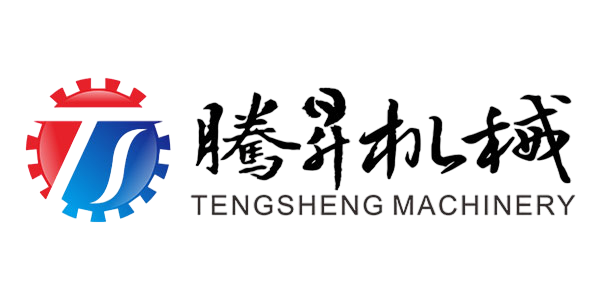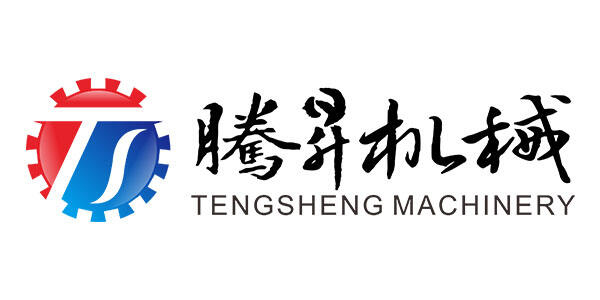Keeping vegetable washing systems well maintained really matters if we want them running at their best, particularly when it comes to those filters. When filters get blocked up, the whole system slows down quite a bit sometimes cutting output by around 20 percent or so. Operators need to check these filters every day and give them a good going over to clear out all that dirt and leftover bits from veggies. Regular cleaning keeps everything working smoothly through the wash line. And don't forget to keep track of all this maintenance work somewhere visible maybe on a wall chart or digital logbook. These records show how often things get dirty and let us spot problems early before they become big headaches later on. Setting up a proper cleaning routine makes all the difference too. Just running water over the filters isn't enough sometimes needs a proper rinse under pressure to knock off stubborn deposits. Doing this regularly extends the life of the whole washing setup considerably.
Keeping vegetables safe during processing requires regular cleaning of spray nozzles and conveyor belts in washing systems. Most facilities find that cleaning these parts every two weeks with proper food grade sanitizers works best for stopping bacteria buildup that might contaminate produce. Operators need to check how evenly water sprays across surfaces too. A good working nozzle will spread water uniformly without leaving dry spots where pathogens could hide. For restaurants and processors wanting to pass health inspections, keeping detailed records of when cleaning happened and what products were used makes all the difference. These logs show inspectors exactly when maintenance occurred and help track any issues over time. The bottom line is simple documentation helps maintain consistent food safety throughout the entire operation.
Checking belt tension and alignment regularly in those big industrial vegetable washers really matters if we want to keep things running smoothly and avoid breakdowns. Most equipment makers will give recommended tension settings that help reduce slippage problems without putting too much strain on the motor components. Following these specs makes all the difference when it comes to getting good performance out of the machines. And don't forget to look around for signs of wear or when belts start looking out of place. A quick visual check now can stop bigger issues down the road that would cost way more to fix later. These routine inspections pay off in the long run, saving maintenance dollars and keeping the whole washing line operating without interruptions.
Keeping brushes in good shape matters a lot when it comes to cleaning veggies properly without damaging them. Anyone working with these machines knows they need to check brushes regularly for any signs of wear because worn out brushes just don't work as well. Some research shows that when brushes stay clean and maintained, the whole washing process goes smoother. Most operators replace brushes as soon as they notice any fraying or breakdown since this helps keep the produce looking good and reduces waste from damaged items. For facilities running large scale operations, spending on tougher, longer lasting brushes pays off in the long run by making those industrial vegetable washers perform better day after day.
Keeping an eye on how the motor and pump perform regularly stops those surprise breakdowns and keeps the veggie wash running smoothly. When logging performance, pay attention to strange noises or unusual vibrations coming from the machinery since these often point to bigger problems lurking inside. Checking if the pump is putting out what it's supposed to according to specs makes sure everything runs at peak efficiency. This lets maintenance folks catch issues early before they mess up the whole cleaning line. For anyone working with industrial vegetable washing systems, sticking to regular checkups isn't just good practice it's basically essential if wanting those machines to last years longer while still doing their job properly.
Getting water pressure right matters a lot for those big commercial veggie washers out there. We've all seen what happens when pressure drops too low or spikes unexpectedly. Regular checks catch problems early so veggies actually get cleaned properly instead of just getting splashed around. When pressure strays outside what the equipment maker recommends, cleaning gets compromised and that opens up serious food safety issues down the line. Most modern systems now come with built-in pressure gauges that track readings over time, keeping things in check against those manufacturer specs. A good monitoring setup isn't just about following rules though it keeps operations running smoothly day after day while protecting the integrity of fresh produce coming off the line.
Keeping minerals from building up in the pipes is really important for any commercial vegetable washing setup to work properly. When we clean out those mineral deposits regularly, the water flows better through the system and actually gets the job done right. Water softeners make a big difference too, particularly when dealing with hard water issues. We've seen firsthand how switching to softened water stops those pesky mineral deposits from forming in the first place. And don't forget about checking everything once a month for early warning signs of buildup problems. This simple habit keeps the whole cleaning process running smoothly while saving on energy costs over time.
Regular lubrication of those moving parts in small scale veggie washers really matters if we want them lasting longer without falling apart. Most manufacturers have their own schedules for when this needs doing, so sticking close to those guidelines keeps things running smoothly and stops surprises like sudden breakdowns during peak season. Safety first folks! Only use quality lubricants approved for food contact areas. The last thing anyone wants is contamination risks from cheap greases that don't meet FDA standards. And let's not forget about keeping some sort of record system going. A simple notebook or spreadsheet works wonders tracking when each part got lubed last time, which spots need extra attention, and spotting patterns where problems keep coming back month after month.
Getting the temperature controls right on vegetable washers matters a lot because the water needs to hit certain cleaning standards to keep things safe for consumption. Checking those thermometers regularly isn't just good practice it's pretty much mandatory if we want to stay within food safety rules. Facilities that run their machines all day long really need to set up some kind of regular calibration routine. Otherwise, those temperatures can drift over time and nobody wants undercooked veggies coming out of the line. Machines that work nonstop especially need attention since even small changes in temperature can affect how well they clean produce throughout the day.
If vegetables aren't getting properly cleaned in commercial washing machines, start by looking at water pressure levels and how the nozzles are working. Problems with either will mess up the whole cleaning cycle and leave some veggies still dirty. Keep track whenever this happens so patterns become clear over time. That makes finding the root cause much simpler later on. Don't forget to check brush alignment too. Brushes that are off track or clogged with debris just spread around whatever wasn't washed away properly. A good maintenance schedule should include regular checks here. And actually writing down when things go wrong helps everyone stay on top of recurring problems before they turn into bigger headaches down the line.
When drainage systems get clogged in vegetable washing operations, things can really fall apart fast. Machines flood, components break down, and production grinds to a halt. Regular inspection of these drainage systems isn't just good practice it's absolutely necessary if we want to keep operations running smoothly. A quick daily check goes a long way toward spotting small problems before they turn into big headaches. Many facilities find success by installing mesh strainers at key points throughout their drainage network these simple devices trap most of the vegetable scraps and other debris that would otherwise build up over time. Keeping records of past blockages and what worked to fix them matters too. Looking back at this data helps spot patterns in where and when problems occur, which makes it possible to create smarter maintenance schedules and ultimately reduce downtime across the board.
When conveyor belts run at uneven speeds, it leads to patchy cleaning results in industrial vegetable washers. That's bad news for anyone trying to maintain consistent quality standards. First step? Look around for anything out of place or blocking proper movement along the belt path. Sometimes just a small piece of debris gets stuck somewhere critical. Getting the speed right matters a lot too. Each type of produce needs different settings based on size and shape. Keep track of when problems happen and what fixes worked last time they occurred. Maintenance logs help spot patterns over months rather than weeks. Fixing issues early saves money in the long run because machines last longer when kept running smoothly instead of fighting against constant wear and tear.


Copyright © 2024 Zhaoqing Tengsheng Machinery Co., Ltd all rights reserved - Privacy policy